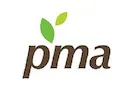Produce Marketing Association (PMA) has announced a breadth of efforts to advance innovation and industry involvement with regulators on PLU stickers. This follows the decision for many countries across Europe to pass regulations that ban non-home compostable PLU stickers, the only effective way to enable retailers to provide bulk produce to consumers.
In 1988, PMA initiated a volunteer committee to develop solutions to ensure the accuracy in the price consumers are charged for fresh fruits and vegetables sold in bulk, or loose, at retail. The solution became the IFPS PLU codes we see today. These codes are administered and governed by the International Federation for Produce Standards (IFPS) and feature a 4-5 digit code printed on a sticker that is then affixed to the fruit or vegetable. While these stickers are food grade, the majority in use today do not meet the standards for being considered “home compostable”, which is being used in many areas, especially Europe, to meet new environmental regulations. A universally applicable “Home Compostable” PLU sticker does not exist yet.
“The PLU sticker is an essential solution to a complex challenge facing retailers, allowing their consumers to clearly understand pricing while also having the flexibility to buy only the amount they want,” said PMA VP of supply chain and sustainability, Ed Treacy. “The alternative to PLU stickers is to package all produce, leading to an increase in plastics and packaging material and limiting choices for consumers or a reduction in premium varieties offered for sale, including organics.”
 Left to right: Ed Treacy, Dr. Max Teplitski.
Left to right: Ed Treacy, Dr. Max Teplitski.
PMA has worked alongside USDA Foreign Agricultural Service (FAS) to support them in outreach to regulators in countries like Spain and France. The association has submitted public comments to France and recently submitted public comments to the Spanish government on the proposed rule on reducing plastic waste which eliminates the use of PLU stickers.
“It is important for us to reduce the need for single use packaging and we appreciate the steps regulators are taking to put sustainability front and center in their solutions,” said PMA chief science officer, Dr. Max Teplitski.
The USDA FAS made research funding available under the Technical Assistance for Specialty Crops (TASC) program to assist in the development of a home compostable PLU sticker. PMA member, Sinclair International, with USDA Agriculture Research Service (ARS) were successful in obtaining a research grant from USDA FAS to develop a home compostable PLU sticker.
PMA was also asked by USAD ARS to assist in communications efforts to educate on the importance of produce packaging and PLU stickers related to export requirements. Treacy will serve in that role during the November 17-18 2021 Annual Workshop for the United States Agricultural Export Development Council (US AEDC) where he will provide industry context in a breakout on single use plastics ban in France and beyond.
 For more information:
For more information:
Siobhan May
Produce Marketing Association
Tel: +1 (302) 781-5855
SMay@pma.com
www.pma.com
